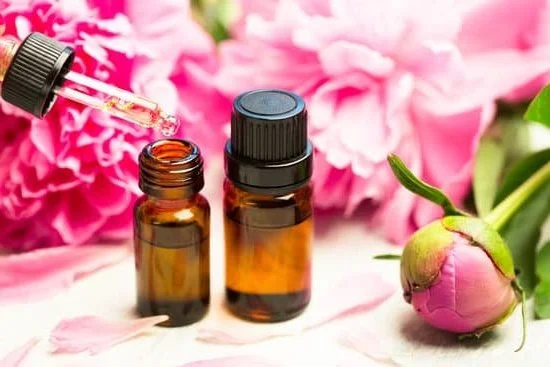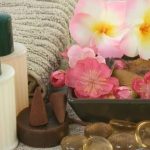Aromatherapy has long been touted for its various benefits, including promoting relaxation, reducing stress, and even improving skin health. Many individuals turn to essential oils as a natural way to address common skincare concerns. However, with the rising popularity of aromatherapy, questions about its potential impact on acne have emerged.
The use of essential oils in aromatherapy has gained attention for its ability to improve overall skin health. From soothing irritated skin to reducing inflammation, different essential oils are believed to offer a range of benefits. However, as more people explore the world of aromatherapy, concerns about its potential link to acne have surfaced.
Understanding the types of essential oils commonly used in aromatherapy and their impact on skin health is crucial. While many essential oils are known for their antibacterial and anti-inflammatory properties that can benefit acne-prone skin, there is also a debate surrounding whether certain essential oils may actually exacerbate acne breakouts.
In this article, we will delve into the connection between aromatherapy and acne, debunk any myths surrounding this relationship, and provide tips for using aromatherapy safely for those with acne-prone skin.
Understanding the Different Types of Essential Oils Used in Aromatherapy
Aromatherapy relies on the use of essential oils to promote skin health and overall well-being. Essential oils are highly concentrated plant extracts that are known for their therapeutic properties. When it comes to skincare, these oils can offer a range of benefits, including hydrating and soothing the skin, reducing inflammation, and even fighting off acne-causing bacteria.
There are various types of essential oils used in aromatherapy, each with its own unique properties and benefits for the skin. Some of the most commonly used essential oils for skincare include:
- Lavender oil: Known for its calming and anti-inflammatory properties, making it ideal for soothing irritated or acne-prone skin.
- Tea tree oil: A powerful antibacterial and antifungal oil that can help combat acne-causing bacteria and reduce breakouts.
- Rosehip oil: Packed with vitamins, antioxidants, and essential fatty acids, making it great for hydrating and repairing damaged skin.
- Chamomile oil: Has anti-inflammatory and antioxidant properties, making it beneficial for sensitive or acne-prone skin.
It’s important to note that not all essential oils are suitable for every skin type. Some may be too harsh or potentially trigger allergic reactions in individuals with sensitive or acne-prone skin. Therefore, understanding the specific effects of each essential oil is crucial when using aromatherapy for skincare purposes.
The Link Between Aromatherapy and Skin Health
Aromatherapy has been known for its wide array of benefits for overall health and wellbeing, including promoting skin health. When it comes to skincare, the use of essential oils in aromatherapy has been gaining popularity due to their natural and therapeutic properties. These essential oils are highly concentrated plant extracts that have been used for centuries for their various healing properties.
Different types of essential oils used in aromatherapy have specific benefits for the skin, such as moisturizing, soothing inflammation, and promoting a healthy complexion. Some popular essential oils for skincare include lavender, tea tree, chamomile, and rosehip. These essential oils are often added to carrier oils or other skincare products to create blends that can be beneficial for a variety of skin concerns.
When it comes to the link between aromatherapy and skin health, it’s important to understand that aromatherapy can have both positive and negative effects on the skin. While many people find that using essential oils in their skincare routine can help improve their complexion, others may experience issues such as acne breakouts related to the use of certain essential oils. It’s crucial to be aware of these potential effects and take precautions when using aromatherapy for skincare purposes.
Understanding how aromatherapy can impact skin health is essential for anyone looking to incorporate essential oils into their skincare routine. With the right knowledge and precautions, individuals can enjoy the benefits of aromatherapy while minimizing any potential negative effects on their skin.
Debunking the Myth
A common concern among skincare enthusiasts is whether aromatherapy can cause acne. There is a myth that using essential oils in aromatherapy can actually trigger breakouts and exacerbate acne-prone skin. However, there is limited scientific evidence to support this claim. In fact, when used appropriately, essential oils can offer a range of benefits for skin health, including helping with acne.
One important factor to consider when it comes to the relationship between aromatherapy and acne is the quality of essential oils being used. Pure, high-quality essential oils are less likely to cause skin irritation or breakouts compared to low-quality or synthetic oils. It is important for individuals with acne-prone skin to carefully select their essential oils and avoid products with added fragrances or synthetic ingredients.
Furthermore, it’s crucial to use essential oils in the appropriate dilution and concentration levels. Undiluted essential oils have the potential to irritate the skin and could contribute to breakouts in some individuals. Diluting essential oils in a carrier oil such as jojoba, coconut, or argan oil not only reduces the risk of skin irritation but also helps ensure that the beneficial properties of the essential oil are effectively delivered to the skin.
| Essential Oil | Recommended Usage |
|---|---|
| Lavender | Dilute at a 2% concentration for topical application |
| Tea Tree | Dilute at a 5% concentration for targeted spot treatment |
| Rosehip | Can be applied directly on affected areas without dilution |
Potential Causes of Acne Breakouts Related to Aromatherapy
Some individuals may experience acne breakouts due to the use of certain essential oils in aromatherapy. While aromatherapy is generally known for its skin benefits, it’s important to understand which essential oils may have the potential to cause acne and why this happens.
Essential Oils That Can Aggravate Acne
Certain essential oils are considered comedogenic, meaning they have a higher likelihood of clogging pores and leading to acne breakouts. Examples of these essential oils include coconut oil, wheat germ oil, and flaxseed oil. Despite their potential benefits for other skin types, those with acne-prone skin should be cautious when using them in aromatherapy.
How Essential Oils Can Contribute to Acne Breakouts
The molecular structure and composition of some essential oils can lead to increased sebum production and clogged pores. It’s important to note that each individual’s skin reacts differently to specific essential oils, so what may cause acne for one person may not affect another in the same way. Understanding how these essential oils interact with your own skin is crucial in mitigating potential acne breakouts.
Importance of Patch Testing
Before incorporating any new essential oil into your aromatherapy routine, it’s imperative to conduct a patch test on a small area of your skin. This will help determine if the particular oil causes any adverse reactions before using it more extensively. Additionally, consulting with a dermatologist or skincare professional can provide valuable insight into which essential oils may be more suitable for acne-prone individuals.
Tips for Using Aromatherapy Safely for Acne-Prone Skin
Aromatherapy can be a beneficial and natural way to promote skin health, but for those with acne-prone skin, it is important to use essential oils carefully. When using aromatherapy for acne-prone skin, there are several tips to keep in mind to minimize the risk of causing breakouts.
Firstly, it is crucial to dilute essential oils properly before applying them to the skin. Undiluted essential oils can be too potent and may irritate the skin, leading to acne flare-ups. It is recommended to mix essential oils with a carrier oil, such as jojoba oil or coconut oil, at a low concentration to reduce the risk of irritation.
Additionally, it’s important to patch test any new essential oils before using them on larger areas of the skin. This involves applying a small amount of diluted essential oil to a small area of skin and waiting 24-48 hours to check for any adverse reactions. Patch testing can help determine if a particular essential oil is safe for use on acne-prone skin.
Furthermore, when using aromatherapy for acne-prone skin, it’s best to avoid direct application of essential oils on areas with active breakouts or open wounds. Instead, focus on applying the diluted essential oils to areas where breakouts are less frequent or dilute further if necessary. Overall, practicing caution and diligence with the use of aromatherapy can help individuals with acne-prone skin enjoy its benefits without exacerbating their condition.
Recommended Essential Oils for Acne-Prone Skin
Tea Tree Oil
One of the most widely recognized essential oils for treating acne is tea tree oil. This powerful essential oil has natural antibacterial and anti-inflammatory properties that can help reduce acne-causing bacteria on the skin. It also helps to calm redness and inflammation, making it a popular choice for those with acne-prone skin.
Lavender Oil
Lavender oil is known for its soothing and healing properties, making it a great option for treating acne-prone skin. Its anti-inflammatory and antibacterial properties can help reduce redness, inflammation, and prevent future breakouts. Additionally, lavender oil has a calming aroma that can help reduce stress and promote relaxation, which may also benefit those with acne.
Rosehip Seed Oil
Rosehip seed oil is rich in antioxidants and essential fatty acids, making it an excellent choice for nourishing acne-prone skin. This lightweight oil helps to moisturize the skin without clogging pores, while also promoting cell regeneration and reducing the appearance of scars left behind by acne. Its ability to balance oily skin makes it a suitable option for those prone to breakouts.
When using essential oils for acne-prone skin, it’s important to dilute them properly with a carrier oil, such as jojoba or almond oil, to avoid irritation. Patch testing is also crucial to ensure that the chosen essential oils do not cause any adverse reactions. Always consult with a dermatologist or skincare professional before incorporating new essential oils into your skincare routine, especially if you have sensitive or reactive skin.
Conclusion
In conclusion, aromatherapy can be a beneficial and natural way to promote skin health when used appropriately. Essential oils have been utilized for centuries for their therapeutic properties, including their ability to address skin concerns such as acne. It is important to note that while aromatherapy can offer benefits for skin health, it is essential to use caution, especially for individuals with acne-prone skin.
Understanding the potential causes of acne breakouts related to aromatherapy is crucial in order to avoid any adverse effects. Some essential oils may be comedogenic, meaning they have the potential to clog pores and exacerbate acne. However, by selecting non-comedogenic oils and using them in dilution with carrier oils, individuals with acne-prone skin can safely incorporate aromatherapy into their skincare routine.
When using aromatherapy for acne-prone skin, it is advisable to consult with a qualified professional or dermatologist who can provide personalized recommendations based on individual skin concerns. With proper knowledge and care, aromatherapy can be a valuable tool in promoting clear and healthy skin without causing or worsening acne breakouts. By understanding the best practices for using essential oils, individuals can harness the benefits of aromatherapy while minimizing the risk of adverse effects on their skin.
Frequently Asked Questions
Can Essential Oils Cause Pimples?
Yes, essential oils can cause pimples for some individuals, especially if they are applied directly to the skin without being diluted. Certain essential oils have a high comedogenic rating, meaning they can clog pores and lead to breakouts.
It’s important to do a patch test before using essential oils on the skin and to always dilute them with a carrier oil.
What Are the Bad Side Effects of Aromatherapy?
While aromatherapy is generally considered safe when used properly, there are some potential bad side effects to be aware of. These can include skin irritation or allergic reactions from improperly diluted essential oils, headaches or dizziness from overpowering scents, and respiratory issues in individuals who are sensitive to strong smells.
Using aromatherapy in moderation and with caution can help mitigate these potential side effects.
Can Essential Oils Cause Skin Problems?
Yes, essential oils can cause various skin problems if not used correctly or if an individual has sensitivity or allergies to specific oils. Skin problems such as irritation, redness, rashes, or even burns can occur from using undiluted essential oils directly on the skin or inhaling them excessively.
It’s important to always do a patch test before using essential oils topically and to educate yourself about any potential risks associated with specific oils before incorporating them into your skincare routine.

Are you looking for a natural way to improve your health and wellbeing?
If so, aromatherapy may be the answer for you.



